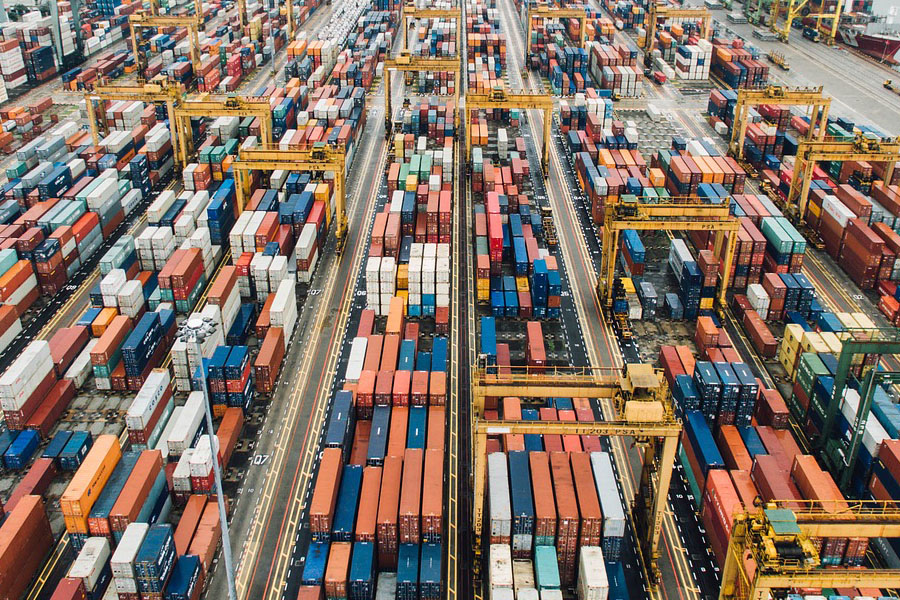In international trade, the terms of the contract and the assumption of costs in practical operations can be adjusted according to negotiations between the two sides. Here are some key points and observations in practical operations, detailed analysis of common trade terms and the associated cost and responsibility division.
Common trade terms and their meanings
1, FOB (Free on Board) responsibility division: the seller is responsible for transporting the goods to the shipment port and onboard the ship. The costs and risks are borne by the buyer. The costs are borne by: the seller is responsible for domestic transportation, shipment fees, customs clearance fees; the buyer is responsible for shipping fees, customs clearance fees, customs clearance fees and customs clearance fees.
2, CIF (Cost, Insurance and Freight) responsibility division: the seller is responsible for transporting the goods to the destination port and insured for the goods. The costs and risks after arrival in the destination port are borne by the buyer. The costs are borne by the seller: domestic transportation, shipping charges, customs duties, shipping charges and insurance charges; the buyer is borne by the port departure charges, import clearance charges and subsequent transport charges.
3, CFR (Cost and Freight) responsibility division: Similar to CIF, but the seller is not responsible for the insurance of goods. the costs are borne by the seller: the seller is responsible for domestic transportation, cargo shipping fees, customs clearance fees and shipping fees; the buyer is responsible for port clearance fees, import clearance fees and subsequent shipping fees.
4, EXW (Ex Works) responsibility division: The buyer is responsible for picking up the goods from the sellers factory and bears all subsequent costs and risks. The seller bears the costs within the factory; the buyer bears all costs after picking up the goods from the factory, including domestic transportation, customs duties, shipping fees, port of destination unloading fees, import clearance fees and subsequent shipping fees.
5.DDU (Delivered Duty Unpaid) liability division: the seller is responsible for transporting the goods to the buyers designated place, but does not include customs duties and import taxes of the destination port. The costs are borne by the seller: domestic transportation, customs clearance fees, shipping fees, shipping fees and shipping fees of the destination port; the buyer is responsible for customs duties, import taxes and clearance fees.
Delivered Duty Paid (DDP): The seller is responsible for transporting the goods to the place designated by the buyer and paying all charges, including customs duties and import taxes in the destination port. The seller is responsible for all charges, including domestic transport, customs clearance, shipping charges, shipping charges, customs duties, import taxes, clearance charges and subsequent shipping charges.
Flexibility of trade terms
In international trade, although the terms of the contract determine how the transaction is made, the actual payment of the goods can also be adjusted according to the specific circumstances. The key is negotiation and trust between the two sides.
1, change the specified goods: under the FOB terms, if the seller is not satisfied with the goods specified by the buyer, can negotiate the replacement of the goods. In the actual operation, the two sides can either reverse order the cabin (the buyer preorder the cabin, the seller reorder) or directly change to CIF, by the seller to bear the shipping fee.
2, cost adjustment: If the contract is FOB at the time of conclusion, but in the actual operation the seller bears additional shipping fees or other charges, can be adjusted in subsequent payment of goods.

Legal Effect and Commercial Credit
While foreign trade contracts have legal effect, more emphasis in international trade is placed on the business credit and negotiation capacity of both sides. The actual responsibility for the execution of contract terms and costs can be flexibly adjusted according to the negotiations of both sides, but the following must be taken into account:
Written confirmation: All changes and adjustments must be confirmed in writing in order to avoid subsequent possible disputes. Written confirmation may be mail, fax or other legal documentation.
Transparent communication:ining transparent communication, ensuring that both parties have a clear understanding of the cost and responsibility division.
In major transactions, you can consult with legal advisors to ensure that the terms of the contract and practical operations are in accordance with international trade practices and legal regulations.
Observations in Practical Operations
Risk management: The potential risks should be considered when changing the terms of the contract or the actual operation, especially when it comes to freight transport and the division of responsibilities, ensure that all risks are reasonably allocated and managed.
Save all relevant records and documents, including contracts, change confirmations, mail communications records, etc., for future inspections.
Trust Building: In international trade, trust is very important.Build long-term partnerships through transparent communication and reliable service to reduce friction and risk in transactions.


 Follow customer service WeChat
Follow customer service WeChat